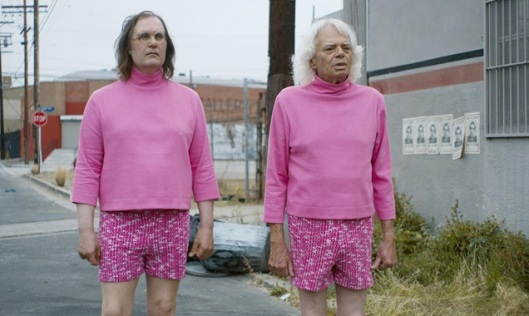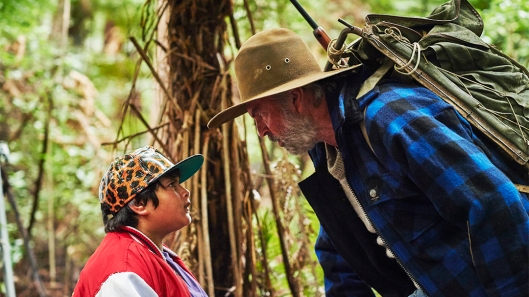
Is it really that time again, to look ahead to the coming year and hope against all previous experience that things will get better, that Hollywood will launch itself wholeheartedly into making original, entertaining, thought-provoking movies that aren’t creatively moribund? Well, yes it is, but in the spirit of recent changes on thedullwoodexperiment the movies highlighted here and in Part 2 won’t feature very many of the tentpole movies that will be hyped to death between now and their release next year, because, well, that’s what everyone else will be doing. So, here’s the first batch of contenders looking to conquer our hearts and minds in 2017. How many will you see, and how many will become new favourites?
1) Loving Vincent – A project that has literally taken years to accomplish (more than it takes Pixar or Dreamworks to produce one of their movies), Loving Vincent is the world’s first painted animation feature. It also incorporates traditional 2D animation and rotoscoping into its visual structure, and features the voice talents of Saoirse Ronan, Chris O’Dowd and Aidan Turner amongst others. The Vincent in question is Van Gogh, and the movie explores the mysteries surrounding his life and death, and will do so in a way that promises to expand the possibilities of animation in a whole new, breathtaking way.

2) Granite Mountain – In June 2013, a wildfire ignited south of Prescott, Arizona that would later claim the lives of nineteen firemen as they fought to bring the blaze under control. The men were members of the Granite Mountain Hotshots, and Joseph Kosinski’s tribute to them and their valiant efforts has attracted a stellar cast that includes Josh Brolin, Miles Teller, Jennifer Connelly, James Badge Dale, and the ever-reliable Jeff Bridges.
3) The Death and Life of John F. Donovan – Xavier Dolan directs a hopefully compelling drama that examines the consequences and moral contradictions that arise when a movie star, John F. Donovan (played by Kit Harington) is revealed to have corresponded with a child actor (who’s eleven). Assumptions are made, and Donovan’s career and reputation are put at risk. Natalie Portman, Susan Sarandon and Jessica Chastain round out the cast, and for the eagle-eyed. there’s a cameo from Adele.
4) Tulip Fever – A project that was filmed in 2014 and has sat on the shelf since then doesn’t sound like a movie with much to recommend it, but Justin Chadwick’s adaptation of Deborah Moggach’s novel of 17th Century romance and drama amongst the art scene in Amsterdam, and based on a script by Tom Stoppard no less, doesn’t have to mean it’s a turkey ready-basted for the oven. It also features an eclectic cast that includes Zach Galifianakis, Alicia Vikander, Jack O’Connell, Christoph Waltz, and Judi Dench, but however it turns out, this should be interesting to watch if nothing else.

5) The Coldest City – Based on the graphic novel by Antony Johnston, The Coldest City sees James McAvoy’s undercover MI6 agent sent to Berlin during the Cold War to recover a list of double agents that’s gone missing while also investigating the death of a fellow agent. It’s highly likely that the two things will be connected, but with the likes of Toby Jones, Charlize Theron and John Goodman to help muddy the waters, it’s also likely that McAvoy’s character will be fighting for his own life before the movie’s over.
6) The Circle – Originally due to hit our screens this year, James Ponsoldt’s adaptation of the novel by Dave Eggers features Emma Watson as a young woman who lands a job at a powerful tech company and finds herself involved in a wide-ranging conspiracy that could hasten the way in which surveillance technology erodes personal privacy. With Tom Hanks as a mysterious colleague whose loyalties Watson’s character can’t be completely certain of, this has the potential to be a whip-smart thriller, and quite timely as well.
7) War for the Planet of the Apes – Very little is known about this third entry in the new Apes franchise, but the good news is that Andy Serkis is back as Caesar, and Woody Harrelson is on board as the movie’s chief villain. Whether or not the title means there’ll be more action this time round remains to be seen, but as long as the dramatic threads of Rise… and Dawn… are maintained, then there’s no reason to expect anything but another intelligently handled entry in a series that’s been a surprise success from day one.
8) T2: Trainspotting – A sequel that many, many people have been waiting for, the awkwardly titled T2: Trainspotting reaches us with Danny Boyle returning to the helm, and reunited with the original cast (less Kevin McKidd). Based on Irvine Welsh’s novel, Porno, this promises to be as scabrous and deliciously crude as its predecessor, and if the tone is right, could be one of the more deliberately unapologetic movies released in 2017.

9) Yeh Din Ka Kissa – It’s an indie movie with a classic indie set up: an estranged family gathers for an event to celebrate the father’s work. What long-lasting emotional traumas will be brought up, and which long-buried secrets will be disinterred? Only writer/director Noah Baumbach knows, but with the likes of Adam Sandler, Ben Stiller, Dustin Hoffman and Emma Thompson taking part, Yeh Din Ka Kissa has all the potential to be a must-see dramedy.
10) The Shape of Water – Guillermo del Toro returns after the disappointment of Crimson Peak with this eerie fantasy set against the backdrop of the Sixties and the Cold War between Russia and America. Sally Hawkins is the janitor working in a lab where a mysterious “amphibious man” is being held. Cue elements of romance, danger, and (no doubt some) horror as Hawkins’ character decides that the “amphibious man” should be freed. Del Toro seems to be walking a bit of a tightrope in achieving the necessary credibility for his tale, but it’s a project he’s been working on for some time, so let’s give him the benefit of the doubt.
11) Molly’s Game – The directorial debut of Aaron Sorkin, this adaptation by the man himself of Molly Bloom’s memoir, features the ubiquitous Jessica Chastain as the writer who set up and ran an international high stakes poker game, and became the subject of an FBI investigation. Expect a screenplay liberally strewn with Sorkin’s trademark intelligent dialogue, and a close examination of a world that few people get to experience.
12) Battle of the Sexes – It’s true story time as husband and wife directing team Jonathan Dayton and Valerie Faris take on the media circus that surrounded the 1973 tennis match between World No. 1 Billie Jean King (played by Emma Stone) and ex-champ Bobby Riggs (a well-chosen Steve Carell). It’s an event that cries out for comedic treatment, and hopefully the true absurdity of both the reasons for the match and the eventual game itself will be highlighted in such a way that audiences unfamiliar with it all will be wondering, How on earth?
13) Same Kind of Different As Me – A story that focuses on faith and how much it can transform a person’s life, Same Kind of Different As Me features Greg Kinnear as an art dealer whose relationship with a dangerous homeless man (played by Djimon Hounsou) could be the key to saving his marriage. With Renée Zellweger as the wife, and supporting roles for Jon Voight and Olivia Holt, this drama may not attract a wide audience, but it does appear to have enough going for it to be a strong alternative to the usual mainstream fare.

14) Guardians of the Galaxy Vol. 2 – James Gunn and crew return with a sequel that, if handled properly (and there’s no reason to suspect otherwise), will prove to be just as energetic and enjoyable as its predecessor. There will be other superhero movies released in 2017 – inevitably – but it’s this that has the best chance of rising above its competitors and showing them how superhero movies should be made (and yes, that means you, Warner Bros.).
15) Weightless – Set against the music scene in Austin, Texas, this could be veteran director Terrence Malick’s Nashville, but it’s just as likely that he’ll give us yet another elliptical, narrative-lite exploration of a character’s angst-ridden ennui that’s driven by their inability to connect with the people around them. As usual, Malick has assembled an amazing cast that includes Michael Fassbender, Christian Bale, Ryan Gosling, Cate Blanchett, Benicio Del Toro, and Natalie Portman, but while his recent, prolific output is to be welcomed, let’s hope this outing has more of a story than some recent releases.
16) The Book of Henry – Naomi Watts is the mother of a child genius (played by child star du jour Jacob Tremblay), who learns that something terrible is happening in the house next door, and that her son is not only aware of it, but has come up with a plan to deal with it and put things right. But her decision to put her son’s plan into action (inevitably) doesn’t go as planned. Directed by Colin Trevorrow from a script by Gregg Hurwitz, this could be a dark horse in the thriller stakes.
17) Shock and Awe – Ostensibly a drama that hopefully sees a return to form for director Rob Reiner, the title refers to the term used by George Bush to allude to the US Army’s approach to the invasion of Iraq in 2003. But the movie itself concerns a group of journalists who begin to doubt the President’s claim that Saddam Hussein has weapons of mass destruction, and that the War in Iraq is as legitimate as he claims. Reiner’s assembled another great cast, including Woody Harrelson, Milla Jovovich, Alec Baldwin, and Tommy Lee Jones, and if the script points up the irregularities and misinformation the US government fed to the media, then this could be as pertinent a look at government perfidy now as it was then.
18) The Zookeeper’s Wife – Another true story, another Jessica Chastain movie, this sees her play Antonina Zabinski, who with her husband, Jan, was a keeper at the Warsaw Zoo during World War II. Determined to save as many of the zoo animals, and people, as she could, Antonina took tremendous risks in avoiding detection and capture by the Nazis, and in the hands of Niki Caro, this has all the potential of being a gripping thriller about personal courage against tremendous odds.

19) American Made – It’s had its fair share of problems – two wrongful death lawsuits so far – and the concept: a pilot working for the CIA also works for a cartel running drugs, has potential at least, but American Made‘s success will hinge entirely on two men: director Doug Liman and star Tom Cruise. It’s a great combination, and should result in an action thriller that provides jaded action junkies with enough adrenaline-fuelled sequences to keep a perma-smile on their faces, but it’s the story that really needs to be solid if it’s all going to work properly.
20) The LEGO Batman Movie – The movie that’s most likely to be the best DC superhero movie released in 2017, The Lego Batman Movie sees the brick-solid Caped Crusader (once again voiced by Will Arnett) battling a horde of enemies including the Joker (Zach Galifianakis) and Harley Quinn (Jenny Slate), while also trying to raise his adopted son Dick Grayson (Michael Cera). This will be cool, funny, action-packed, and in a weird not-weird way, able to make grown men – okay, fanboys – cry.
21) Bright – This is one of the more out there movies coming out in 2017, as David Ayer directs a script by Max Landis that references a world where fantasy characters such as elves and orcs have become integrated into human society and everyone gets along. It gets generic though as Will Smith’s LAPD cop is assigned an Orc partner, and while details are being kept under wraps, it’s likely that they’ll have to investigate a murder, or a case of corruption, that ultimately leads to a behind the scenes villain who hates the status quo. But Landis has promised the action will be incredible, and Ayer is no slouch in that department, so we’ll just have to wait and see just how batshit crazy it all is.
22) Jungle – “If you go down to the jungle today…” – it’s bound to end badly. And that’s the likelihood in a thriller directed by Greg McLean that stars Daniel Radcliffe as one of a group of friends who go trekking through the Bolivian jungle with a guide who isn’t all he says he is. Based on a true story, with Radcliffe playing Yossi Ghinsberg, who ended up lost and alone in said jungle back in 1981, this could well be a nerve-shredding experience, but only if McLean puts the hugely disappointing The Darkness behind him and trusts in the material.

23) My Cousin Rachel – An adaptation of the novel by Daphne Du Maurier (and which was previously filmed in 1952 with Olivia de Havilland and Richard Burton), this romantic drama spiced with intrigue and revenge features Rachel Weisz and Sam Claflin as the cousins whose relationship becomes increasingly more intimate even though he suspects her of murdering his guardian. Roger Michell directs, and sensibly, the period setting is retained, making this a rare historical drama in amongst all the other releases in 2017.
24) Rebel in the Rye – A biopic of renowned, and reclusive, author J.D. Salinger, with Nicholas Hoult taking on the role, this also features Kevin Spacey as Whit Burnett, Salinger’s mentor at Columbia University, Zoey Deutch as Oona O’Neill, who had a short romance with Salinger in the late 40’s, and Sarah Paulson as Dorothy Olding, who was his agent. It remains to be seen if Danny Strong’s examination of Salinger’s life will reveal anything new about the writer, but he’s an intriguing character, and one worth taking a closer look at.
25) Beauty and the Beast – With the success of Jon Favreau’s The Jungle Book, Disney adds another live-action adaptation of one of their animated classics to the roster. Emma Watson is Belle, Dan Stevens is the Beast, while the likes of Ewan McGregor, Ian McKellen, Emma Thompson and Stanley Tucci put flesh on the “bones” of all those ornaments and dinnerware we’ve come to know and love. But as with The Jungle Book, it remains to be seen just how many of the original animated classic’s wonderful songs will be kept in place.













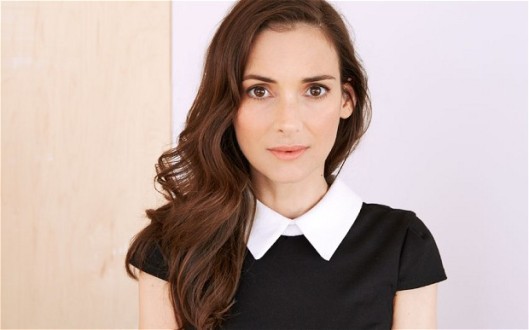




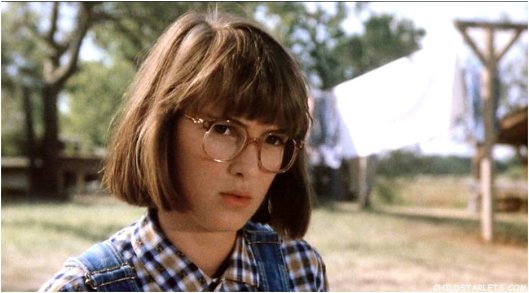






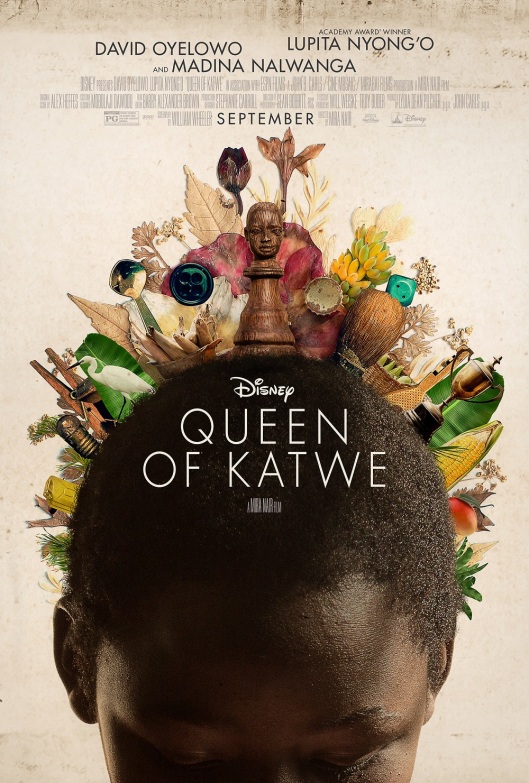



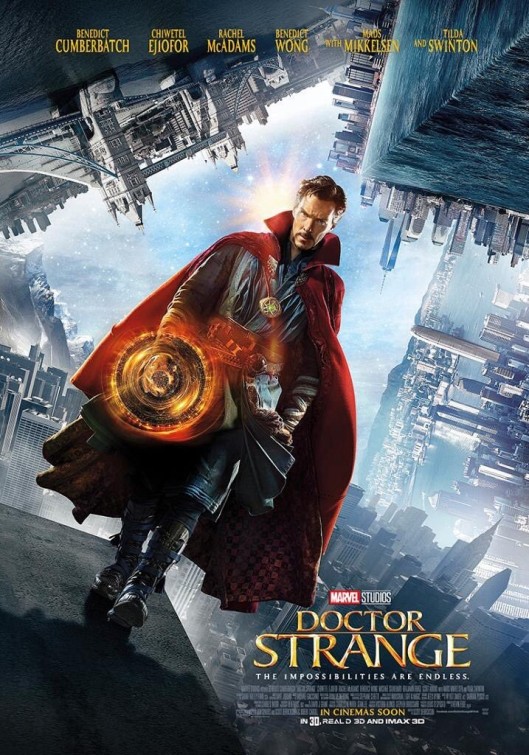



































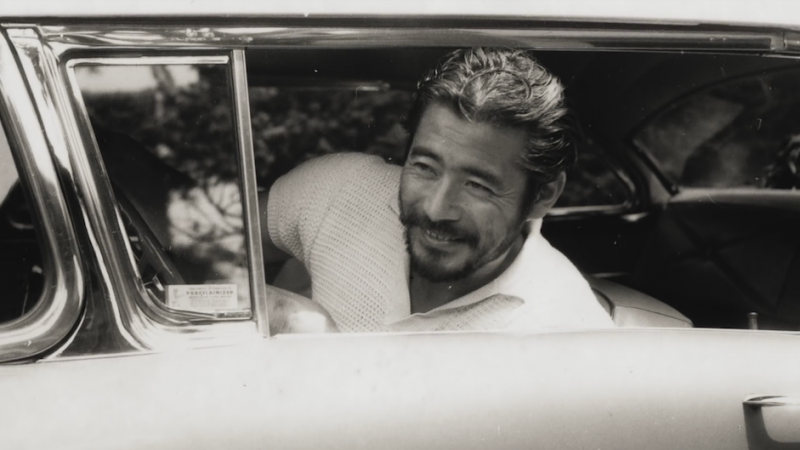



.jpg)


